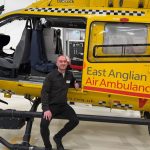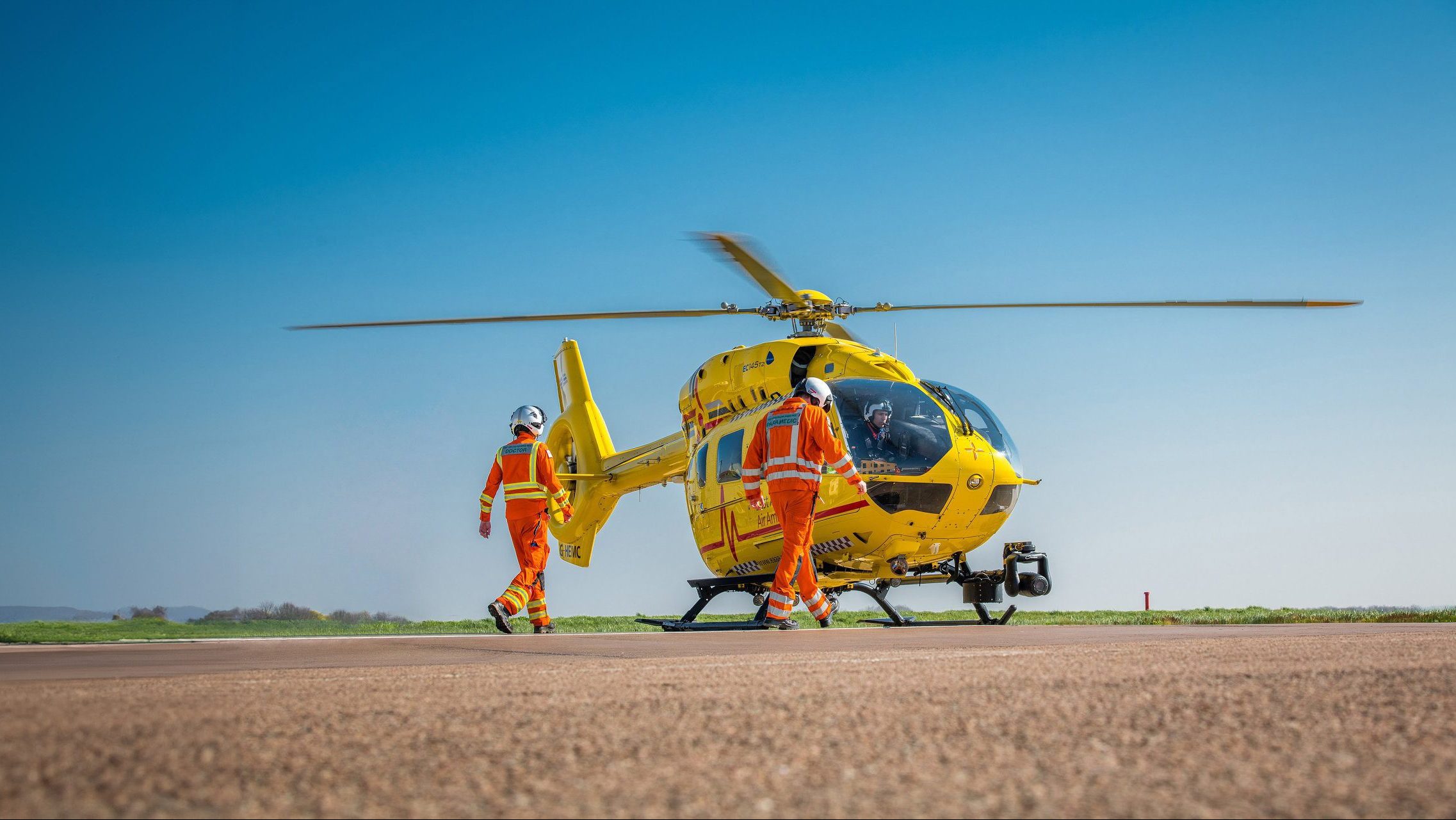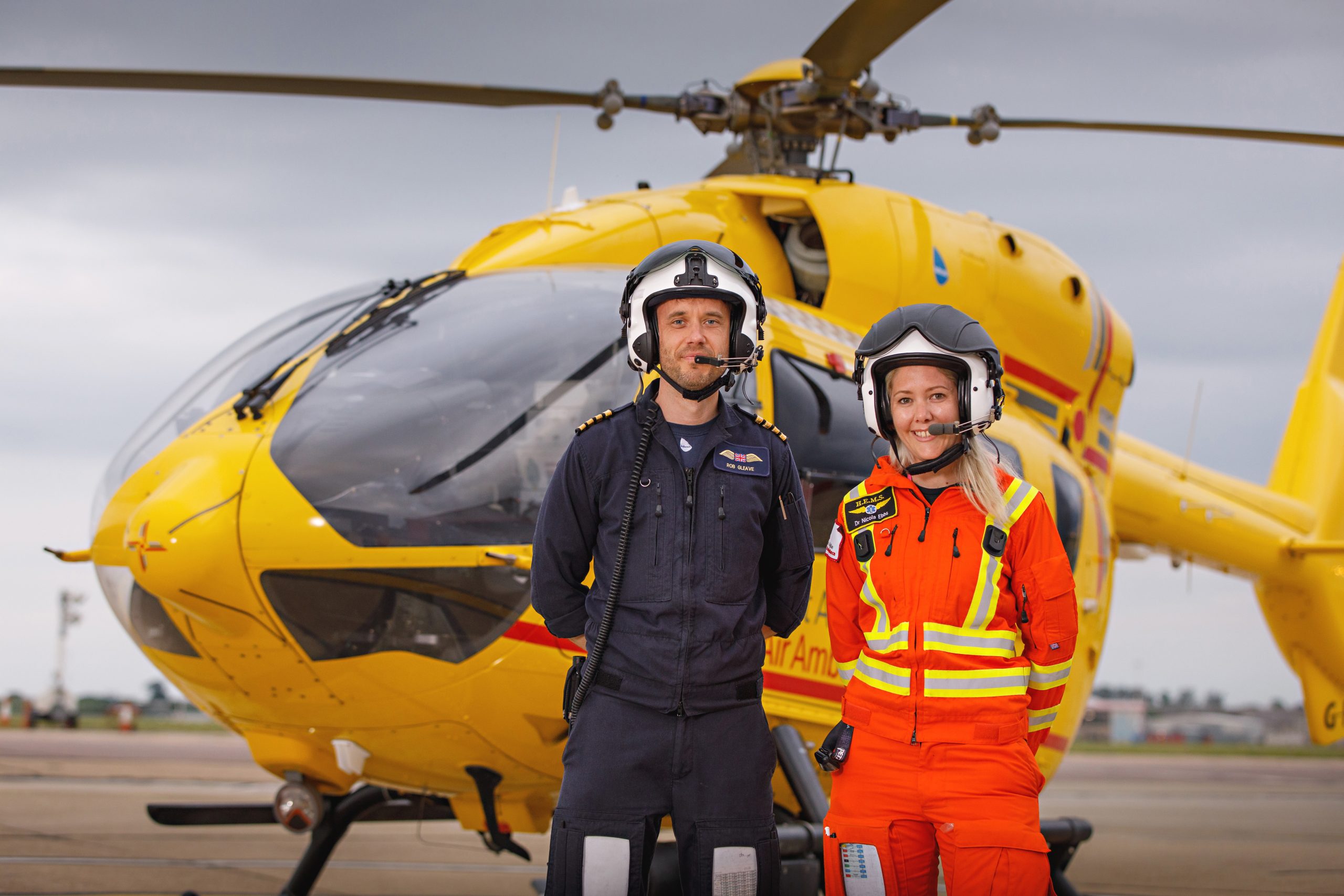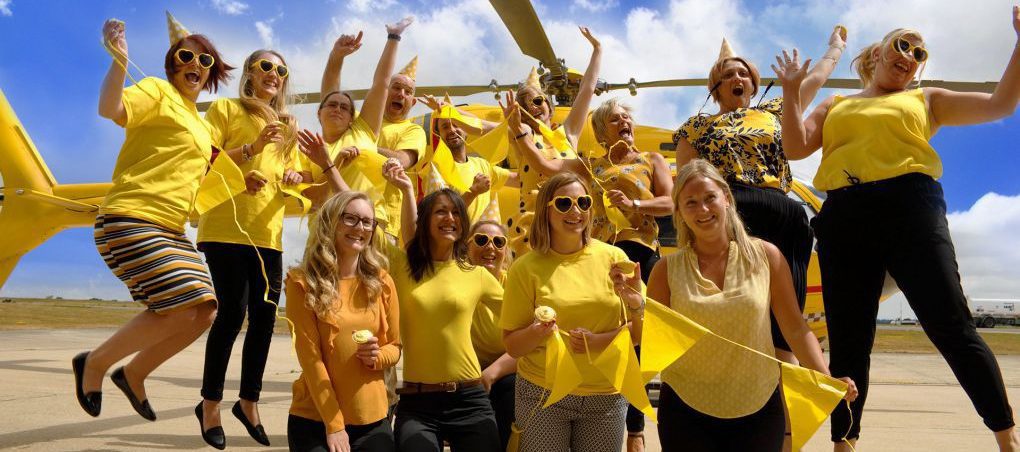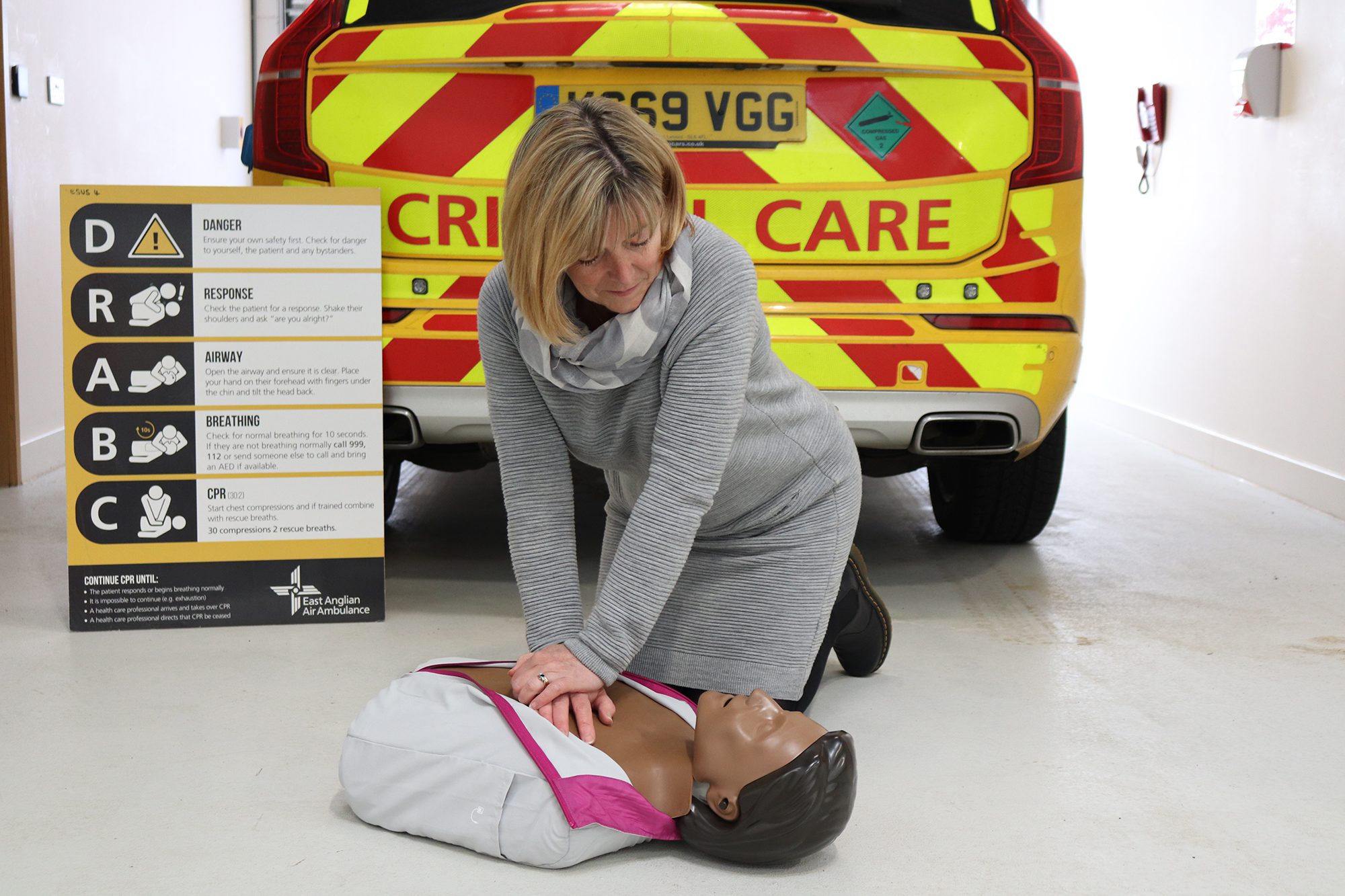27 Feb 2020
Find out how our Critical Care Paramedics train to do their job
My name is Luke Chamberlain and I am a Critical Care Paramedic (CCP) with the East Anglian Air Ambulance (EAAA). We often get asked how someone might become a CCP, below I've outlined both my journey and some more generic pathways and information.
I joined the then East Anglian Ambulance Service in 2002, aged 18, and worked in the control room until 2007, when I was fortunate to commence Student Paramedic training. At this time the East of England Ambulance Service offered training in the vocational form of an IHCD program which essentially consisted of ‘in house’ training courses, a period of mentored operational exposure and then a part time university program. I registered as a Paramedic in 2010.
I knew I wanted to be a CCP with EAAA early on in my career but knew it was vital to gain experience as a clinician prior to application, most roles require two – three years of post-registration experience in order to apply. Following registration I undertook numerous roles, including front line operations, training and education and operational management, and I used this time to prepare myself as best I could. I found out from current CCPs what educational and skill prerequisites were required from them. I then made a tailor-made ‘shopping list’ of all the courses and clinical experiences that I would need to achieve my aim. I took a considerable amount of my free-time studying for and attending courses such as ALS, PHTLS and a prehospital sedation and anaesthesia course, to get myself up to speed with the basics of enhanced pre-hospital care.
“Since becoming a CCP my learning hasn’t stopped, if anything it’s increased exponentially. I have continued to study at university, at work and in my own time. I consider myself to be extremely fortunate to work with EAAA and would absolutely recommend my role to others!”
Luke Chamberlain
Critical Care Paramedic
Currently in the UK to become a Paramedic you must undertake a training program that is approved by the Health and Care Professions Council (HCPC). Some ambulance services are still offering roles that include both in house and higher education, however most Paramedics registering today do so via university degree programs.
Whilst there are clearly defined standards for what makes a Paramedic, any addition to this title are much less regulated. There is currently no nationally recognised standard for CCPs, I think there is very much an aspiration nationally from ambulance services and the College of Paramedics to achieve this but we’re not there just yet.
My best advice for anyone interested in becoming a CCP, is to first find a suitable program to become a Paramedic, if you’re not one already, then I would recommend considering first with which organisation you would most like to be with and then seek out their particular requirements. Additionally things such as attending clinical governance days, observers shifts and consider trying to get involved with the non clinical aspects of the organisation such as charity fundraising or operational awareness.
